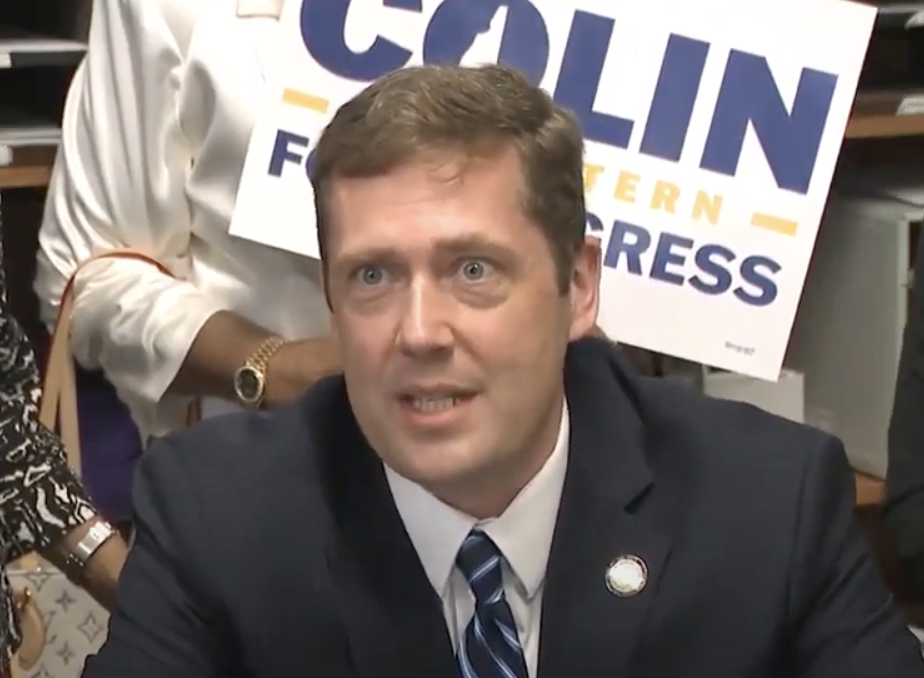As NH Dems Embrace Crypto, Pappas Opts Out

Democratic candidates are scrambling for support in the growing crypto currency sphere, and many want their party’s leadership to change the perception that Democrats are hostile to the emerging financial technology.
But New Hampshire’s Rep. Chris Pappas (D-Manchester) isn’t one of them.
A group of congressional Democrats and candidates, including Maggie Goodlander and Colin Van Ostern, recently wrote to Democratic National Committee chair Jamie Harrison asking for changes to the party’s platform to make it more friendly to Bitcoin and other forms of cryptocurrency. Crypto support could be vital in key swing states, they said in the letter.
“From an electoral standpoint, crypto and blockchain technologies have an outsized impact in ensuring victories up and down the ballot. Crypto is at the top of voters’ minds in swing states, and a balanced approach to crypto that spurs innovation while protecting consumers is a net positive for policymakers and candidates,” they wrote.
Pappas was the only major New Hampshire Democrat running for Congress this cycle who declined to sign.
Instead of embracing crypto, Pappas has amassed a record of supporting bills that would hurt the crypto industry.
Pappas voted against Financial Innovation and Technology for the 21st Century Act which proposed protections for crypto buyers. Pappas also voted against the CBDC Anti-Surveillance State Act, which would block the Federal Reserve from creating its own digital currency, giving the powerful bank the ability to run surveillance on crypto users.
Pappas sponsored a bill targeting the use of crypto to purchase drugs on the so-called dark web, linking the use of crypto to criminal activity. His bill would create a task force to study the use of crypto in online crimes.
President Joe Biden’s administration, especially the Securities and Exchange Commission, has been aggressive toward the crypto industry, alienating many potential supporters and donors. With Vice President Kamala Harris leading the ticket, Democrats like Goodlander and Van Ostern hope to see change in the party’s stance.
“We believe this previous hostility does not reflect our Party’s progressive, forward-looking, and inclusive values. A refreshed leader of the ticket represents an opportunity to change that perception,” their letter states.
According to the Financial Times, Harris’ team is already working on a “reset” with crypto industry leaders, stressing that under her leadership the party will be “pro-business, responsible business.”
Harris needs to play catch up with former President Donald Trump. A one-time crypto skeptic who once called it a “disaster waiting to happen,” Trump is now firmly behind the industry. He gave a keynote speech over the weekend at a Bitcoin conference in Nashville, Tenn., embracing the technology and calling for establishing a national Bitcoin stockpile before ending his speech in typically Trumpian manner.
“Have a good time with your Bitcoin and your crypto and everything else that you’re playing with,” Trump said.
Trump has also pledged to fire Biden’s anti-crypto Securities and Exchange Commission Chairman Gary Gensler.
Crypto is popular among New Hampshire Libertarians, and libertarian-leaning Republicans. Nationally, key voters who are political independents are more engaged in crypto currency than either Republicans or Democrats. According to Goodlander and Van Ostern, the technology is gaining ground among those traditionally part of the Democratic coalition.
“Data shows that digital assets are being adopted at higher rates among Gen Z, Black, and Latino Americans, and immigrant communities–key constituencies of the Democratic party–compared to traditional financial products. These technologies are revolutionizing opportunities for these communities, reflecting their transformative potential,” their letter states.
Crypto support comes with potential drawbacks, as Pappas can attest. Last year he was dogged by the campaign money he took from disgraced fraudster Sam Bankman-Fried’s FTX crypto exchange.
Bankman-Fried was convicted of fraud, money laundering, and conspiracy and ordered to repay $11 billion stolen from investors. During the investigation, it was uncovered that Bankman-Fried and his cohorts made 300 illegal political donations, including thousands to New Hampshire Democrats.
Pappas eventually gave his $2,900 FTX donation to a charity, while Democratic Sen. Maggie Hassan gave up $30,000.





